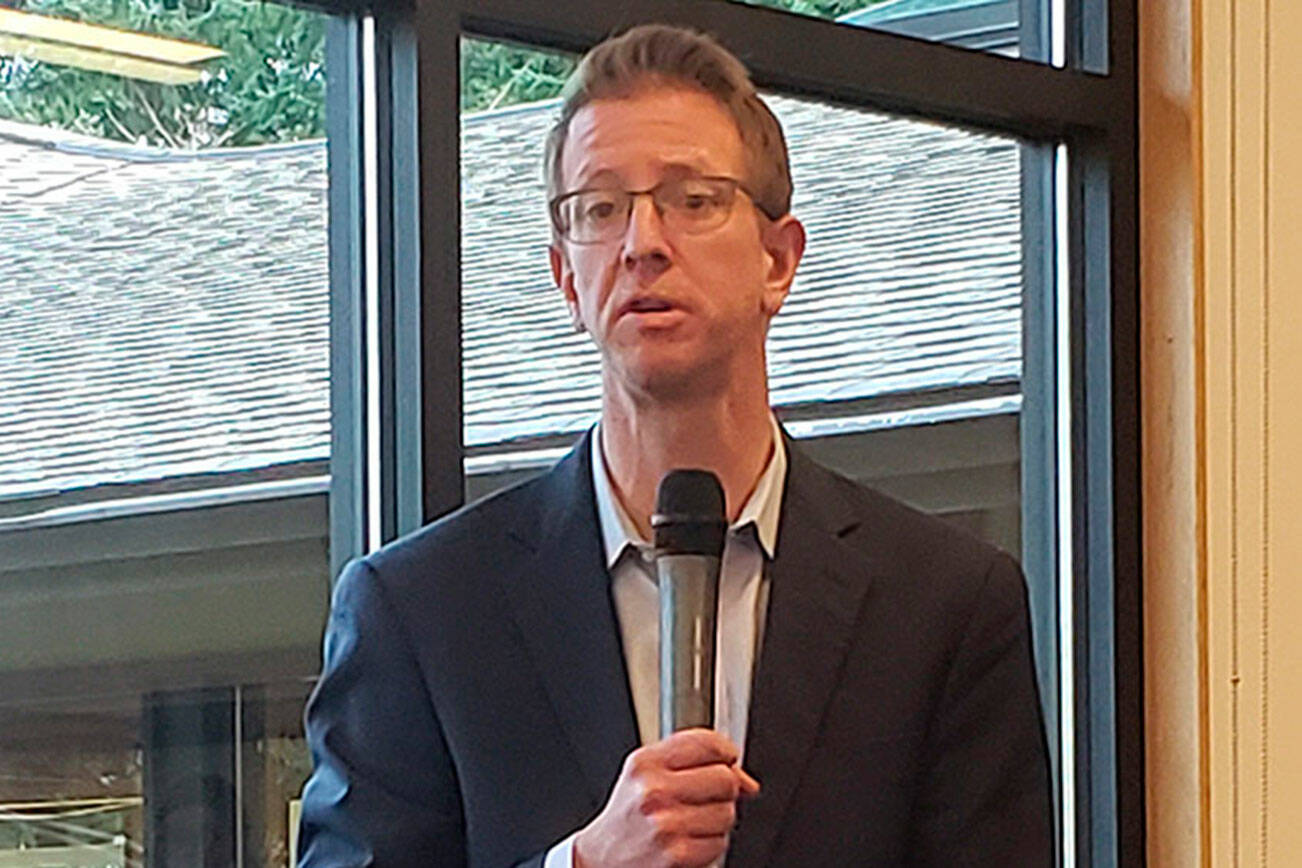Representative Derek Kilmer (WA-06) announced Aug. 25 over $18.3 million in federal grants from the U.S. Department of Transportation’s Federal Highway Administration to improve fish passage in areas that include Bainbridge Island, Port Orchard, and Port Gamble S’Klallam Tribe.
The City of Bainbridge Island will receive over $2.5 million for Springbrook Creek Fish Passage Restoration, Culvert and Weir Removal Project – which proposes to remove a 60-inch failing culvert (only 33% passable to fish) and weir ( 100% fish passage barrier) and replacing it with a 60-foot bridge, a news release states.
The goal of the project is to restore fish passage and population capacity within the project reach and upstream, improve in-stream and riparian habitat conditions, and improve the capacity of the stream to accommodate hydrologic changes associated with climate change. Springbrook Creek is designated as a critical habitat for ESA-listed threatened Puget Sound Steelhead. The project was identified as the number one priority restoration project in its watershed as part of a 2018 assessment.
In Port Orchard, the Washington State Department of Transportation will receive over $4.1 million for the SR166 – Johnson Creek Fish Barrier Culverts Removal and Estuary Restoration project – which aims to remove the existing series of connected fish-barrier culverts on Johnson Creek to open approximately 2,928 meters of potential upstream habitat for anadromous fish.
The portion of the culvert within the WSDOT right-of-way will be replaced with a new single-span bridge to maintain public transportation access into the Port Orchard on SR 166. The sections of the culvert immediately upstream of the highway and existing buildings, which are within city jurisdiction, will be entirely removed to eliminate the remainder of the 500-foot-long fish barrier, address recurring flooding problems, and restore the historic pocket estuary in its place.
The Port Gamble S’Klallam Tribe will receive over $750,000 for the Middle Creek Culvert Replacement Project – which aims to design the removal and restoration of a 100% fish passage barrier culvert located on Middle Creek. The Middle Creek fish passage barrier is a high-priority project for PGST because this stream has been the spawning and rearing ground for Coho, Steelhead, Searun Cutthroat, and Resident Trout.
The funding was allocated from the FHWA’s Culvert Aquatic Organism Passage Program, which was championed by Kilmer in the Bipartisan Infrastructure Law, the largest long-term investment in America’s infrastructure and competitiveness in nearly a century. The AOP program is the first federal program devoted entirely to culvert restoration.
“Through these awards, the federal government is moving to restore fish passages and provide critical access to upstream habitat throughout Washington state. That’s critically important if we’re going to recover the salmon populations that are so vital to our region’s economy, culture, and way of life,” Kilmer said. “This is a big deal, because it underlines our commitment to preserving the environment and the legacy we leave for future generations.”
“In communities across the country where people depend on fishing for their livelihoods, culverts are vital infrastructure for ensuring fish passage,” U.S. Transportation Secretary Pete Buttigieg said. “Through this investment, we are repairing or removing hundreds of culverts nationwide, protecting jobs, mitigating the risk of flooding, and strengthening local economies.”
The grants are part of an announcement by FHWA of $196 million going to 59 tribal, state, and local governments that will fix or remove 169 culvert barriers to improve fish passage – including over $58 million for 46 projects in Washington. Outdated culverts and other infrastructure can cause roads to flood and severely restrict or altogether block fish passage, which is key to the health of fish runs and important to commercial and recreational fishing, and the health of tribal communities, the release states.
The projects also advance a key pillar of the America the Beautiful Initiative by increasing the ecological connectivity of rivers and streams and creating more climate resiliency in our landscapes and communities.
Grant recipients in the Puget Sound watershed will receive almost $45.5 million to reconnect rivers and streams in more than 19 locations, providing safe passage for wild salmon, steelhead, and other fish. Many of these projects will help to increase chinook salmon populations in Puget Sound, which will also assist the Endangered Species Act-listed Southern Resident Killer Whales that make Puget Sound their home and are sacred to tribal nations in the region.



